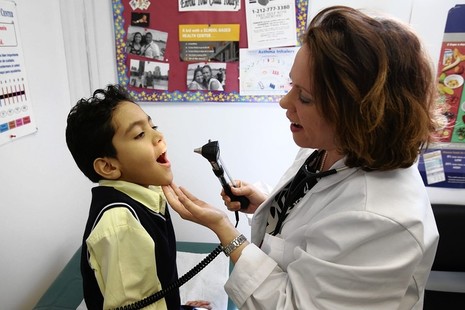 By Samantha Gougher Editor It’s an undeniable fact that much happens during a single school day. When a high school student is taking six classes with different teachers and varying levels of difficulty, it makes sense that the tests, presentations, and blue books can really pile up. However, there are certain things that must be prioritized over the constant flood of work that a Council Rock North student has to handle, the most prominent of which is health. It seems that, in junior year more than any other, students are forgoing the sick days they may need in order to avoid missing school and its associated work. This decision can be detrimental to the individual and the entire school for obvious reasons: sick people get sicker if they don’t take time to heal, stress certainly won’t help someone overcome an illness, and ailments such as colds or the flu may spread to other students, thus worsening the problem. It’s difficult to really identify who the culprit is in this situation, due to its moral complexity. It’s not as though students are coming ill to school out of malice; they’re most likely just feeling pressured by whatever tests they have in classes such as English and Spanish that day. It’s not the teachers’ faults, either; they’re just giving tests according to their own calendars and syllabi. Parents also are difficult to blame because they often simply want their children to succeed, and being present in school is one of the most effective ways of accomplishing that goal. Despite the lack of an antagonist in this issue, the problem is real. School nurse Stacy Gaughan confirms that she sees students who are “conscious” of their condition “very frequently,” listing “tests, presentations, [and] parents” as their reasons for coming to school despite their illnesses. She adds that “95 percent” of the time, she will send those students home. She advises that if a student is “truly sick, [he or she] should stay home” and wait to get better. She also confirms that “[illnesses] tend to spread through the school” rapidly, supporting the idea that perhaps that one vocabulary quiz isn’t worth infecting one’s entire friend group. Beyond the physical ailments that students may experience, another health issue that should be prioritized by North students is mental health, for teenagers are especially prone to anxiety, depression, and eating disorders. No one wants a student to have to experience those illnesses--not teachers, peers, or parents. Please take care of yourself and recognize when things are too much. You’ll be happier and more successful in school if you can determine when you feel okay to go. Thus, if you are sick, mentally or physically, it may not be a helpful idea to come to school. There are many reasons that justify this thinking: the nurses will probably just send you home, there’s a risk of your getting everyone else sick, and health should ultimately be prioritized over schoolwork. Teachers aren’t evil; there are ways for you to make up work and follow up on missed assignments. Nobody wants you to fail, but by dragging yourself to school while sick, you’re just making things more difficult for yourself. Try to communicate with your teachers, your own body, and your parents, and you’ll most likely see a common thread of agreement: everyone just wants you to get better.
1 Comment
Emily
1/23/2016 04:04:47 pm
Also known as, presenteeism.
Reply
Your comment will be posted after it is approved.
Leave a Reply. |
Archives
February 2022
Categories |
 RSS Feed
RSS Feed
